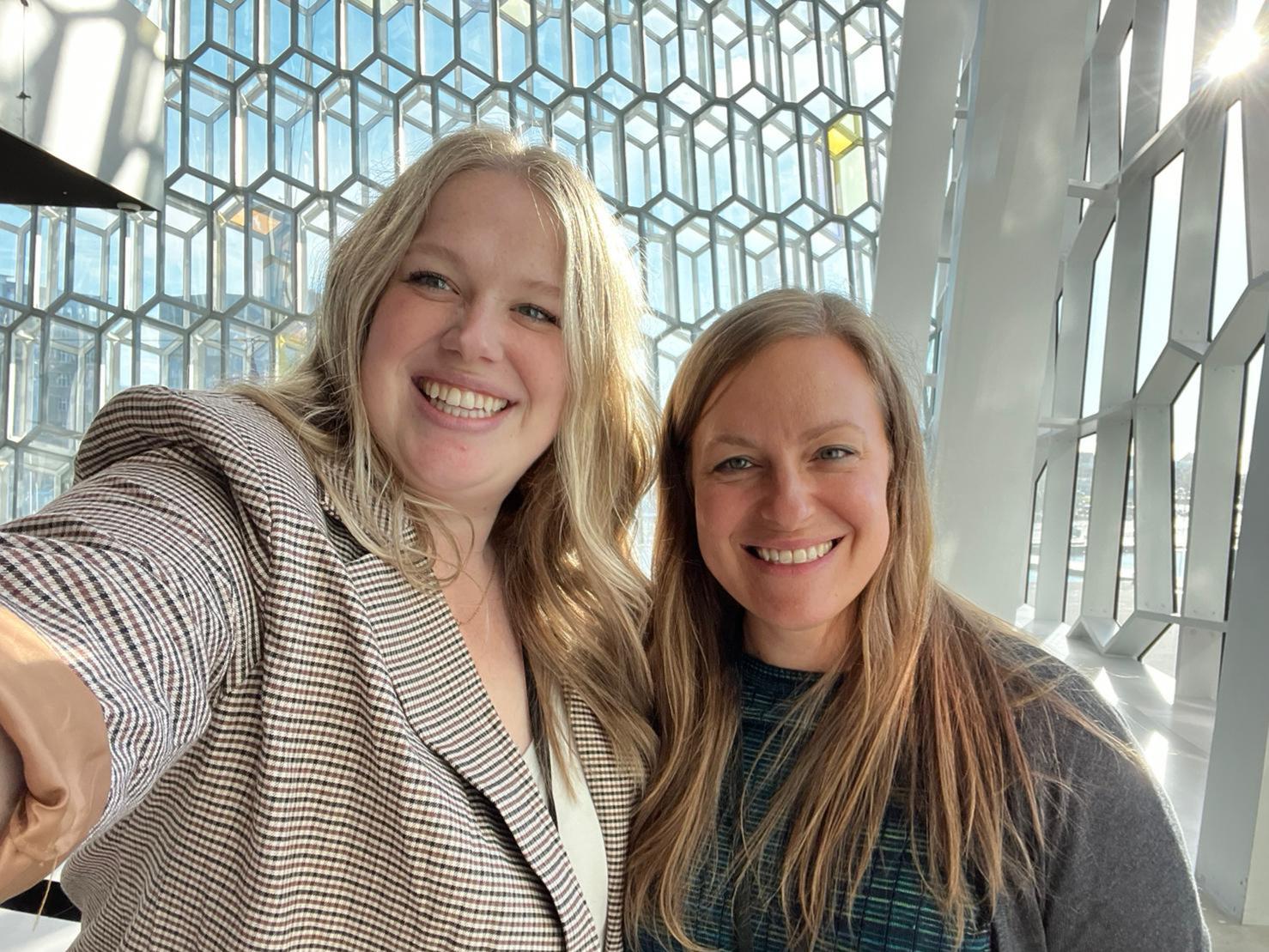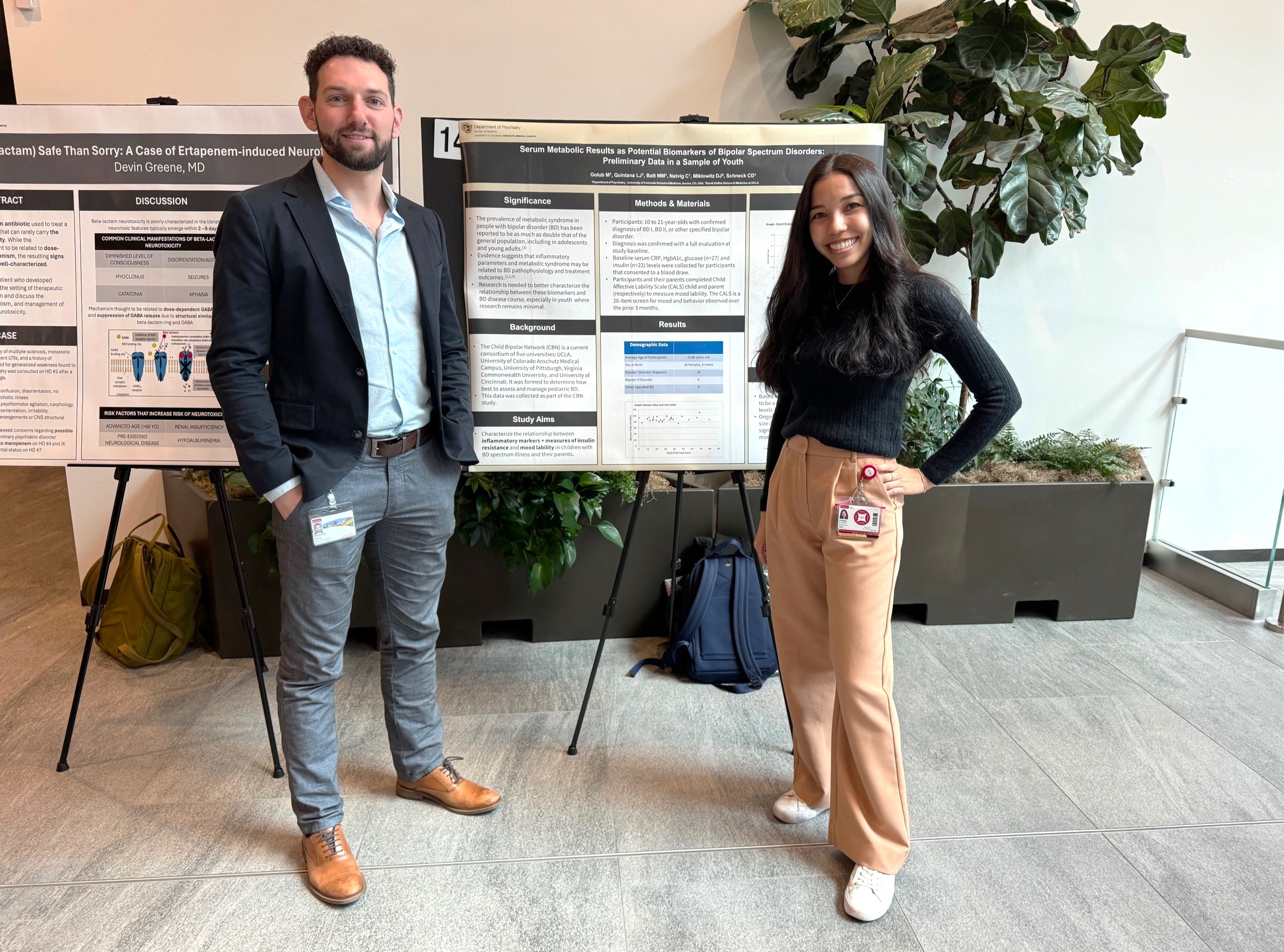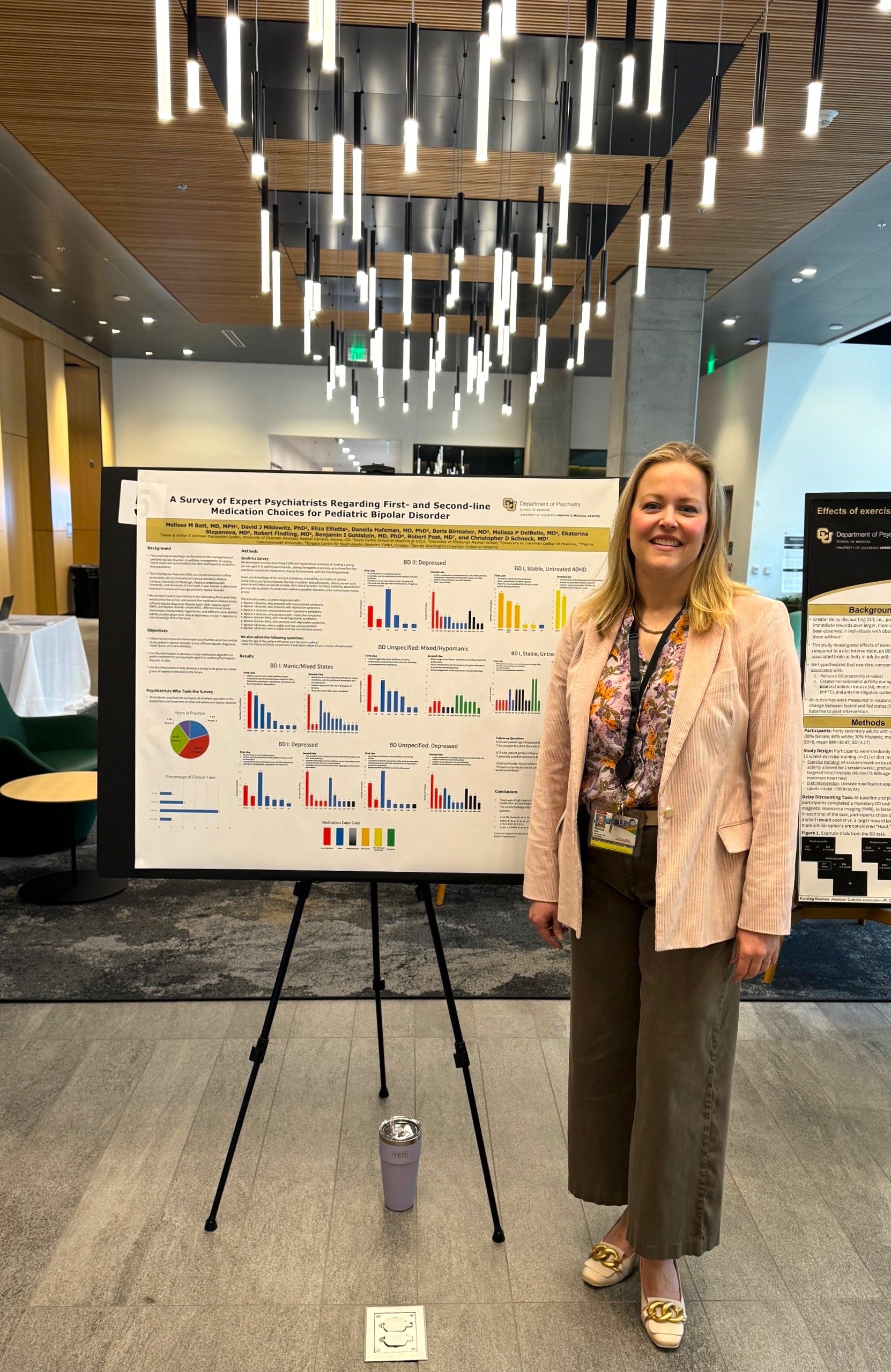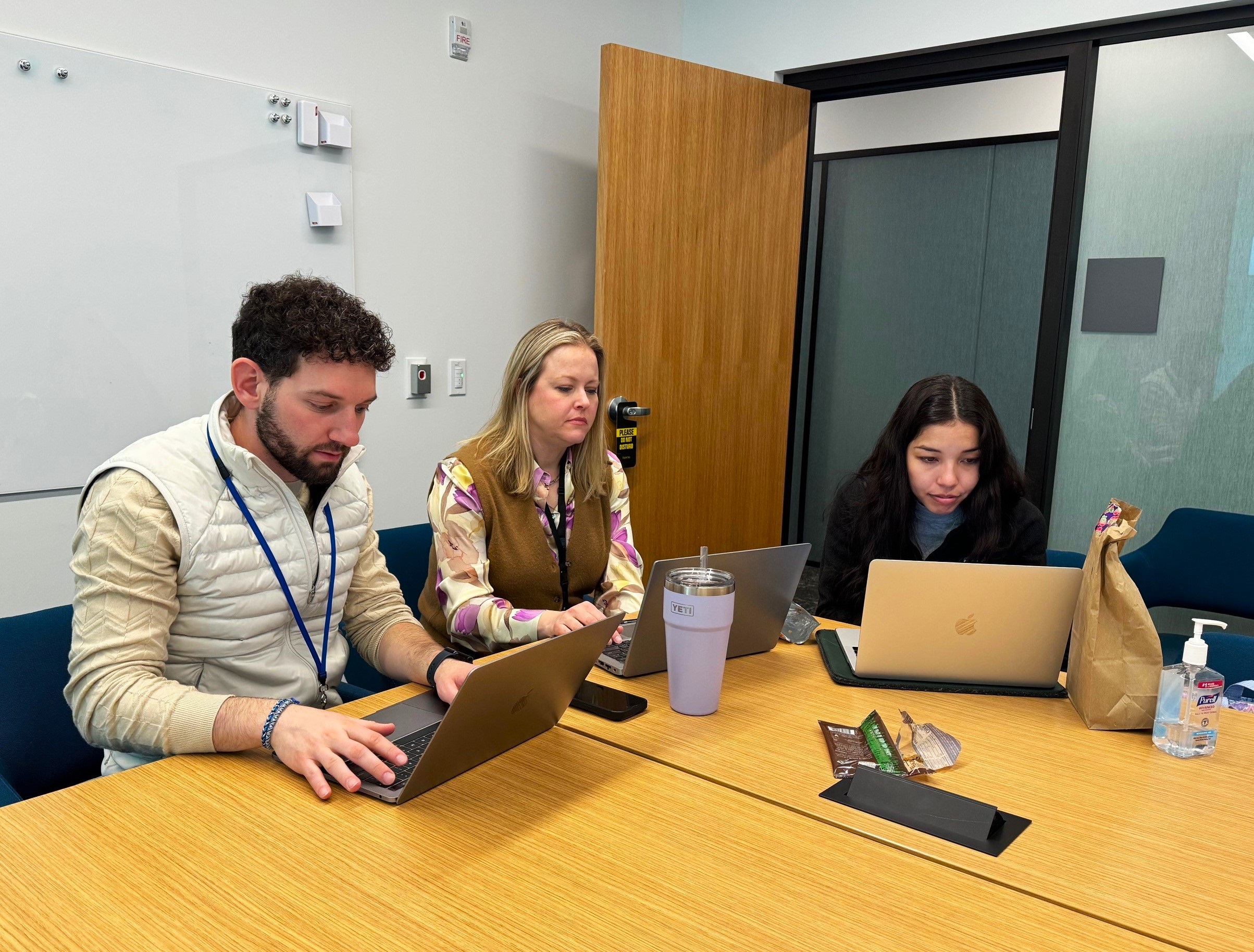.tmb-image1500.png?Culture=en&sfvrsn=c45122bb_1)
Welcome to the STEADY Program!
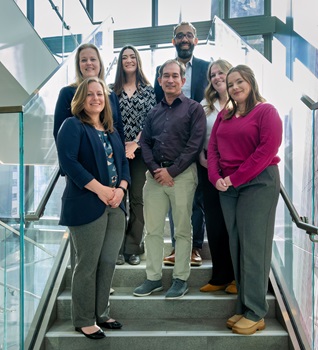
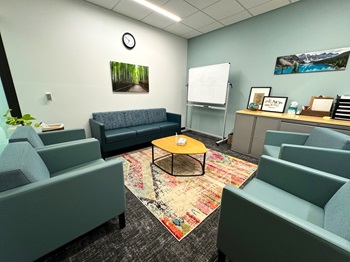
The CU Anschutz STEADY Program (STabilizing Emerging Affective Disorders for Youth to Adults) is an integrated program providing diagnostic evaluations and evidence-based treatment for individuals with bipolar disorder, and those who are at elevated risk for developing bipolar disorder.
We are a team of psychiatrists, psychologists, licensed therapists, and researchers collaborating to offer standardized, thorough diagnostic assessment and early intervention for individuals on the bipolar spectrum. We welcome trainees and volunteers into our program who are interested in learning more about our approach.
Clinical Program Overview
Currently, we are offering comprehensive evaluations, which can determine if an individual currently meets diagnostic criteria for a bipolar disorder, or is at elevated risk for developing the disorder in the future. These evaluations include completion of a clinical interview, online questionnaires, and a standardized diagnostic interview called the K-SADS (The Kiddie Schedule for Affective Disorders and Schizophrenia). Patients will receive an overview of diagnostic results and a written report reviewing symptoms, diagnostic findings, and treatment recommendations during a feedback appointment. These assessments and feedback appointments are typically completed across two to three appointments, and are scheduled and billed through the CU Helen and Arthur E. Johnson Depression Center.
Research
Based on results of this diagnostic evaluation, eligible patients may be invited to participate in one of our ongoing research studies. Currently, we are recruiting participants for a multi-site research program: The Child Bipolar Network (CBN). The CBN is a consortium of five universities across the country (University of Colorado Anschutz, UCLA, University of Pittsburgh, University of Cincinnati, and Virginia Commonwealth University) with expertise in diagnosing and treating bipolar disorder in youth and young adults. Through this naturalistic study, the CBN is examining predictors of clinical outcome for participants with a bipolar spectrum disorder. For more information about participating in this research, please go to the research site: https://researchstudies.cuanschutz.edu/Study/22-0853
Future Directions
In the future, we plan to expand our services to include:
- Preventative support for individuals who are at elevated risk for developing bipolar disorder (namely, those who experience mood symptoms and have a family history of bipolar disorder)
- Time-limited specialized care for individuals who are experiencing the initial episode(s) of a bipolar disorder
- One-time, second-opinion consultations
- Additional research opportunities
Contact Us
We encourage interested individuals and families to reach out to learn more about the STEADY Program offerings.
Phone: 303-724-5350
Email: [email protected]
Meet Our Team Members:

MELISSA BATT, MD, MPH
Medical Director of the STEADY Program
Assistant Professor of Psychiatry
Child, Adolescent and Young Adult Psychiatrist
Education:
BA, Carnegie Mellon University
MPH, University of Texas Health Science Center at Houston
MD, University of Texas Health Science Center at San Antonio
Psychiatry Residency, University of Colorado Anschutz
Child Psychiatry Fellowship, University of Colorado Anschutz
Treatment focus: depression, bipolar disorder, infant mental health (age 0-5,) ‘tween’ years, transitioning young adults, kids experiencing anxiety, peri-partum/post-partum mental health, psychodynamic psychotherapy.
Melissa Batt, MD, is a child, adolescent and adult psychiatrist and an instructor at the University of Colorado Anschutz School of Medicine. Her residency was completed at the University of Colorado Anschutz and she completed her Child and Adolescent Psychiatry Fellowship at the University of Colorado Anschutz, where she also served as chief resident.
Dr. Batt provides medication evaluations, consultations and medication management at the Johnson Depression Center. She also provides some psychotherapy services, including play therapy, for children of all ages, adolescents and young adults. Her research interests focus on mood disorders, most recently involved in the Colorado Family Project by providing research medication visits for adolescents with a mood disorder at risk for developing bipolar disorder. Currently, Dr. Batt enjoys finding new ways to be mindful, either by being in nature, performing detail-oriented activities like coloring, or finding a calming scent.
.png?sfvrsn=50a7cabb_0)
MARIO LINTZ, MD, PHD
Assistant Professor of Psychiatry
Child, Adolescent, and Adult Psychiatrist
Education
BS, Metropolitan State University of Denver
PhD, University of Colorado Anschutz
MD, University of Colorado Anschutz
Psychiatry Residency, University of Colorado Anschutz
Child Psychiatry Residency, University of Colorado Anschutz
Treatment focus: Mood disorders, bipolar disorder, anxiety disorders, adolescent substance use disorders, ADHD, psychodynamic psychotherapy
Mario Lintz, MD, PhD, is an assistant professor at the University of Colorado Anschutz School of Medicine, specializing in child, adolescent, and adult psychiatry. He serves as the medical director of the Substance Use Treatment, Education, and Prevention (STEP) Program at Denver Health. Dr. Lintz focuses on psychiatric evaluation, particularly in bipolar disorder among adolescents and young adults at the Helen and Arthur E. Johnson Depression Center. Additionally, he provides substance use treatment for adolescents and adults at Denver Health. Dr. Lintz is actively involved in teaching medical students, residents, and addiction medicine fellows.
.png?sfvrsn=c4e6cfbb_0)
ANNALIESE CLAVELLE, LCSW
Licensed Clinical Social Worker, Instructor
Helen and Arthur E Johnson Depression Center FAMILY Provider
Education:
BA, University of Colorado Boulder
MSW, University of Denver
Annaliese Clavelle is a licensed clinical social worker and instructor at the Johnson Depression Center. She provides assessment and psychotherapy to patients of all ages, from young children through adulthood. She has previously worked as a research assistant in the Positive Emotion and Psychopathology Laboratory at CU Boulder, Fostering Healthy Futures program through the University of Denver, and as an assessor for the Senseye Diagnostic Tool study at their Colorado site. She has a specialized interest in working with folks that have a history of trauma and co-occurring mood disorders.
.png?sfvrsn=7b4d61b4_0&MaxWidth=500&MaxHeight=500&ScaleUp=false&Quality=High&Method=ResizeFitToAreaArguments&Signature=0FA2EC6ED87EEEB73DFF46E047CA0FFCADC3978D)
EMERALD SALDYT, BS
Professional Research Assistant
Education:
BS, University of Colorado Denver
Emerald Saldyt, BS (she/her/hers) is a research coordinator working with the Johnson Depression Center and Psychiatry Research Innovations (PRI) within the Department of Psychiatry. She graduated summa cum laude from the University of Colorado Denver with a Bachelor of Science in psychology and neuroscience. She has served as clinical research coordinator and project manager at the Department of Veterans Affairs MIRECC for suicide prevention and the University of Colorado Anschutz School of Medicine, Business School, and Departments of Psychology, Education, and Physical Medicine & Rehabilitation. Her interests include evaluating treatment program efficacy, developing health education interventions, understanding bio-psycho-social factors and individual differences in well-being, and examining preventative measures and health outcomes of those with various psychiatric disorders.
cfd2abe7302864d9a5bfff0a001ce385.png?sfvrsn=facfbb_0)
CHRISTOPHER SCHNECK, MD
Professor of Psychiatry
Medical Director, Psychiatrist
Education:
BA, Stanford University
MD, University of Colorado Anschutz
Psychiatry Residency, Yale University
Psychiatry Fellowship, Yale University
Treatment focus: Mood disorders, bipolar disorder, with a particular emphasis on rapid cycling bipolar disorder and adolescent bipolar disorder.
Christopher Schneck, MD, is a professor of psychiatry, the medical director for the Helen and Arthur E. Johnson Depression Center, the medical director of the CU Medicine Bipolar Clinic and holds the Marsico Endowed Chair for excellence. In addition to his clinical duties, Dr. Schneck teaches students, residents and other trainees about mood disorders in the departments of Psychiatry, Family Medicine, Internal Medicine, Neurology, and Neuroscience. His research over the last 20+ years has been focused on bipolar disorder in adults and adolescents, and most recently on children and adolescents at high risk to develop bipolar disorder. He has received numerous awards for teaching and has frequently been recognized as one of Denver’s “Top Doctors.”
2ed032e8302864d9a5bfff0a001ce385.tmb-image350.png?Culture=en&sfvrsn=e1f856b4_1)
AIMEE SULLIVAN, PHD
Clinical Director of the STEADY Program
Assistant Professor of Psychiatry
Clinical Psychologist
Helen and Arthur E. Johnson Depression Center FAMILY provider
Education:
BS, University of Michigan
PhD, University of Colorado Boulder
Predoctoral Internship, University of California, Los Angeles
Treatment focus: bipolar disorder, depression, behavioral difficulties; children (6+), teens, and young adults; individual and family therapy.
Aimee Sullivan, PhD, is a licensed clinical psychologist and Assistant Professor in the Department of Psychiatry. She previously worked with Dr. Catherine Lord at the University of Michigan Autism and Communication Disorders Center, and Dr. Israel Liberzon at the U of M Psychiatry Affective Neuroimaging Lab. She earned her doctorate in Clinical Psychology with Dr. David Miklowitz at the University of Colorado Boulder, and completed her predoctoral clinical internship at UCLA.
She has taught undergraduate and graduate courses at University of Colorado Boulder and University of Denver Graduate School of Professional Psychology. At the Helen and Arthur E. Johnson Depression Center, she uses evidence-based psychotherapies to work with children and adults with mood and anxiety symptoms, and has a special interest in using Family-Focused Therapy to treat bipolar disorders. Current research interests include the role of family variables in the development and course of early-onset bipolar disorders, and evidence-based treatment for youth at high-risk for bipolar disorder.
14d0abe7302864d9a5bfff0a001ce385.png?sfvrsn=dbf8cfbb_0)
MEAGAN WHITNEY, MA
Clinical Instructor
Licensed Professional Counselor
Helen and Arthur E Johnson Depression Center FAMILY Provider
Education:
BA, University of Colorado Boulder
MA in Counseling Psychology, University of Denver
Meagan Whitney, MA, (she/her/hers) is a licensed professional counselor and clinical instructor at the Johnson Depression Center, where she provides evidence-based counseling services primarily to children, adolescents, and adults experiencing bipolar disorders. She began working in research at the University of Colorado Boulder while obtaining her undergraduate degree and received her graduate degree in Counseling Psychology from the University of Denver. She has worked in a variety of settings, including outpatient clinics, inpatient hospitals, emergency departments, schools, and research studies. In addition to providing treatment through the STEADY Program, Meagan also completes crisis assessments in the University of Colorado Hospital Emergency Department and sees clients for outpatient counseling in her private practice.
STEADY Program Pictures:
October 2024: International Society for Bipolar Disorders 26th Annual Conference in Iceland
